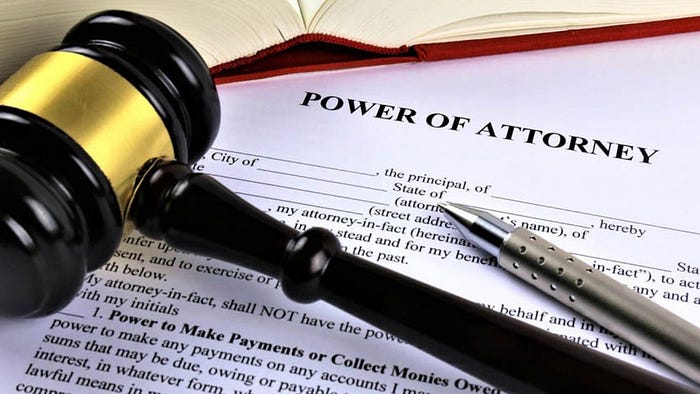Understanding the Basics: What Is a Power of Attorney?

Have you ever wondered what a Power of Attorney is and how it can impact your life? In this article, we will dive into the basics of this legal document and unravel its importance in various scenarios. Whether you are planning for the future or facing an unexpected situation, understanding the Power of Attorney is essential.
What is a Power of Attorney?
A Power of Attorney is a legal instrument that grants someone else the authority to make decisions on your behalf. It can cover a wide range of matters, from financial and property-related decisions to healthcare and medical choices. By executing a Power of Attorney, you can ensure that your interests are protected, even when you are unable to make decisions for yourself.
There are different types of Powers of Attorney, each with its own purpose and limitations. It is crucial to choose the right type that aligns with your specific needs and objectives. Let’s explore the different types of Powers of Attorney in more detail.
Types of Power of Attorney
General Power of Attorney: This type of Power of Attorney grants broad powers to the appointed agent to act on your behalf in various financial and legal matters. It is commonly used when you want someone to handle your affairs temporarily, such as during a time of illness or absence. However, it is important to note that a general Power of Attorney becomes invalid if the principal becomes incapacitated.
Durable Power of Attorney: This type of Power of Attorney is often used for long-term planning and allows the agent to continue making decisions on behalf of the principal even in the event of their mental or physical incapacity.

Limited Power of Attorney: It grants the agent the authority to make decisions on specific matters or for a limited period of time. For example, you may want to grant someone the power to sell your property while you are out of the country. In such cases, a limited Power of Attorney can be created to delegate specific powers for a specific purpose.
Springing Power of Attorney: A springing Power of Attorney only becomes effective when a specific event or condition occurs. For example, you may want to grant someone the authority to make decisions on your behalf only if you become mentally incapacitated. The triggering event must be clearly defined in the Power of Attorney document.
Importance of a Power of Attorney
The importance of a Power of Attorney cannot be overstated. Life is unpredictable, and there may come a time when you are unable to make decisions for yourself due to illness, injury, or other circumstances. By having a Power of Attorney in place, you can ensure that someone you trust is authorized to act on your behalf and make decisions that align with your wishes.
A Power of Attorney can provide peace of mind knowing that your affairs will be handled by someone who understands your values and priorities. Without a Power of Attorney, the court may appoint a guardian or conservator to make decisions for you, which may not be in line with your preferences.
When do you need a Power of Attorney?
There are various situations where having a Power of Attorney are crucial:
Aging and Elderly: As you age, your ability to make decisions may decline. Having a Power of Attorney in place ensures that your financial and healthcare matters are managed by someone you trust.
Unexpected Incapacity: Accidents and illnesses can happen at any time, leaving you unable to make decisions. By having a Power of Attorney, you can designate someone to act on your behalf during such unforeseen circumstances.
Travel or Absence: If you are planning to be away for an extended period, having a Power of Attorney allows someone to handle your affairs while you are unavailable.

Business Matters: Whether you run a business or have complex financial affairs, a Power of Attorney can be useful in delegating decision-making authority to a trusted individual.
Conclusion
In conclusion, a Power of Attorney is a powerful legal instrument that grants someone else the authority to make decisions on your behalf. It is essential for planning ahead and ensuring that your interests are protected, even when you are unable to make decisions for yourself. By understanding the different types of Powers of Attorney, their importance, and how to create one, you can take control of your future and have peace of mind knowing that your affairs are in trusted hands. Don’t wait until it’s too late — unlock the power behind the Power of Attorney today.


Comments
Post a Comment